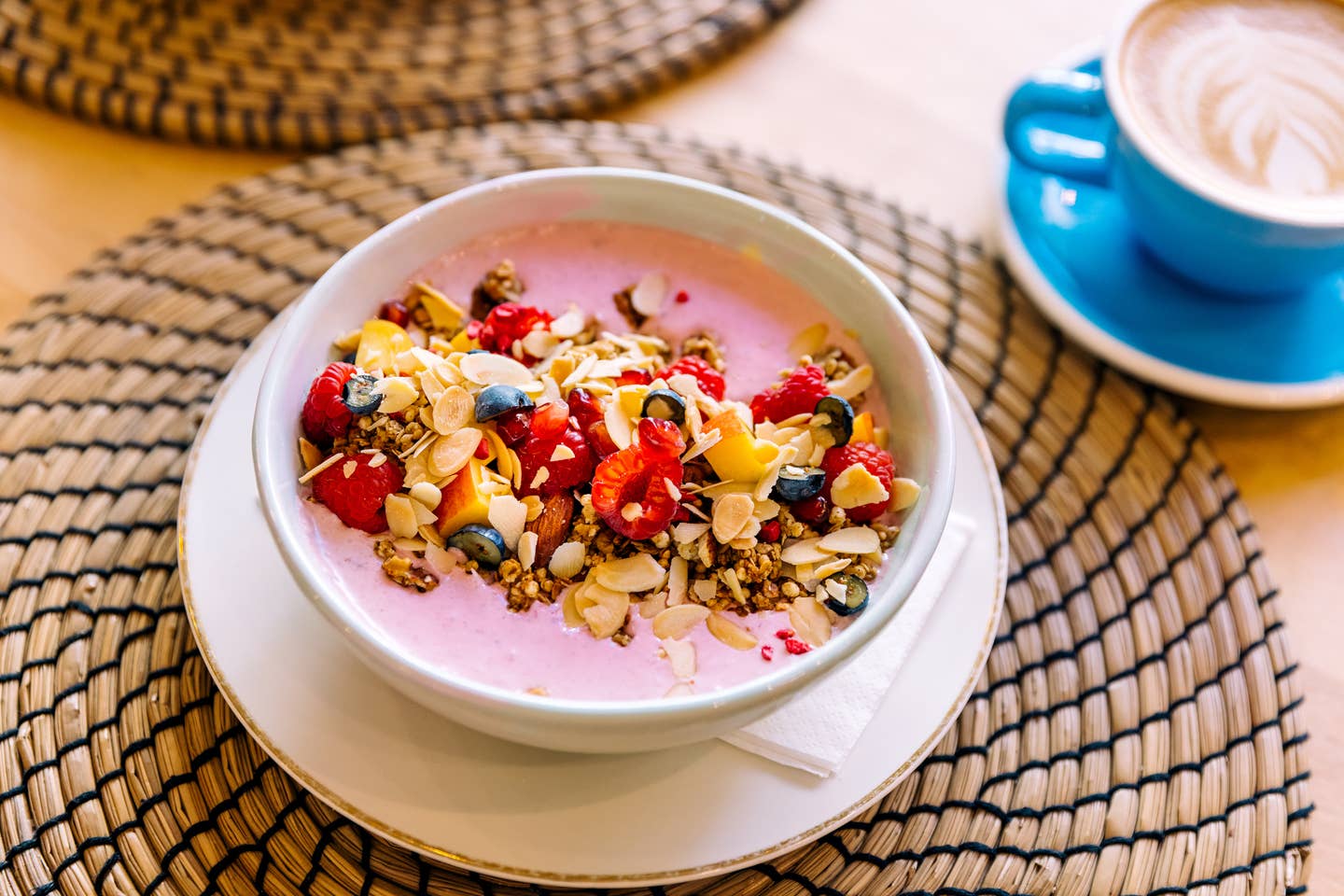
What Are Polyphenols? The Health Benefits, According to Experts
When was the last time you thought about how many polyphenols you ate in a day? Probably never. That’s because polyphenols aren’t a food group. Nor are they essential nutrients. But they are powerful compounds that naturally occur in fruits, vegetables, and legumes. “They’re not required by the human body for sustaining life, but they can exert beneficial function,” says Shyamala Vishnumohan, Ph.D., dietitian, and nutrition scientist in Perth, Australia.
Simply put, they have their own superpowers, so to speak. “Think of them as health boosters,” she adds. And who couldn’t use a health boost these days? Here’s what you need to know about these powerful things called polyphenols.
What are polyphenols?
Polyphenols are naturally occurring organic molecules in most whole plant foods. “While many of them are antioxidants, some have other beneficial advantages, such as being anti-inflammatory,” says Limor Goren, Ph.D., scientist, a molecular biologist in Montauk, N.Y., and founder of kyoord.com, a company specializing in high-phenolic olive oil. E 8,000-plus polyphenols have been identified to date, and new ones are still being discovered.
What do polyphenols do?
Researchers believe that plants develop polyphenols to protect themselves from insects and environmental toxins. So when you eat those polyphenols, they go to work in your body the same way. “Polyphenols act as powerful antioxidants, helping fight free radical damage in your cells,” says Jen Scheinman, M.S., R.D.N., a dietitian in Ossining, N.Y.
Here are some key ways polyphenols can make you healthier:
1. They can lower your risk of heart disease
Flavonoids are antioxidants that belong to the polyphenol family, and they play a strong role in heart health, Vishnumohan says. In a recent study, researchers found that certain flavonoids can help lower heart disease, namely anthocyanins (think berries, purple grapes, and red cabbage), flavonols (like those in onions, kale, and broccoli) and isoflavones (in soy and fava beans).
2. Polyphenols may improve your brain function
Blueberries are often heralded as being good for your brain, and it’s true. Chalk it up to the anthocyanins which exert a strong antioxidant power on the brain, Vishnumohan says. Among healthy older adults aged 65 to 77, those who drank blueberry juice for 12 weeks showed improved brain function versus a group who drank a placebo.
3. Polyphenols can positively affect your gut microbiome
Polyphenols help feed your gut microbes, when converting them into chemicals that can be absorbed. “What this means is a knock-on effect, not just for your gut health but also your immune system and mental health,” Vishnumohan says. Scheinman points to an even more recent study that shows that the bacteria in the gut transform polyphenols into metabolites that benefit human health.
4. Polyphenols can decrease your risk of cancer
There is a specific polyphenol in olive oil called oleocanthal that Goren has studied extensively. Her research indicates that it has anti-tumorigenic properties, essentially helping counteract the formation of tumors and killing cancer cells.
Can polyphenols help you lose weight?
Some studies suggest that eating polyphenol-rich foods could offer some benefits if you’re trying to lose weight. For instance, tea and turmeric were shown in a study in the journal Nutrients to alter how you metabolize energy, which can foster weight loss, Scheinman says. And studies have linked higher consumption of extra virgin olive oil to weight loss, possibly because of its polyphenols, Goren says.
Yet Vishnumohan urges caution with taking this too literally. “Research does not yet support polyphenol supplementation as a strategy for weight loss,” she says. “If there’s one thing we can learn from research, it’s that there is no magic bullet for weight loss.”
What foods are high in polyphenols?
Most whole plant foods contain polyphenols, but some have more than others. Here are the most polyphenol-rich foods, according to Vishnumohan:
Beverages:
- Filtered coffee
- Cocoa
- Black tea
- Green tea
- Red wine
Fruits:
- Blueberries
- Blackberries
- Black currants
- Plums
- Cherries
- Strawberries
- Raspberries
- Prunes
- Peaches
- Apples
Vegetables and legumes:
- Olives (both green and black)
- Red onion
- Spinach
- Broccoli
- Asparagus
- Soy
Nuts and seeds:
- Flaxseed
- Hazelnuts
- Pecans
- Almonds
- Chestnuts
Fats:
- Extra virgin olive oil
Herbs and Spices:
- Oregano
- Parsley
- Thyme
- Basil
- Rosemary
- Sage
- Cinnamon
- Cumin
- Ginger
- Star anise
- Capers
- Cloves
- Curry powder
Adding these to your diet is easy, she says. For instance, top your breakfast bowl with berries, drizzle your veggies with extra virgin olive oil, toss nuts into your salads or s, or add herbs and spices to your dishes.
Should you take polyphenol supplements?
Supplements do have a place in a healthy diet, and some research suggests that polyphenol supplements might offer some benefits for gut health and oxidative stress caused by exercise, Scheinman says. Yet she still recommends whole plants over pills. Not only is research on dosing and effectiveness still inconclusive, but “there is some evidence that high doses of polyphenols from supplements may actually cause harm,” she adds.
Bottom Line: Polyphenols come with an array of health benefits.
Try to eat as many polyphenol-rich foods as you can. If you’re not eating whole plant foods 100 percent of the time, aim to eat 10 servings of plant foods a day so you get not only polyphenols but also fiber and other vitamins and minerals, Scheinman says.
For more expert advice, visit The Beet's Health & Nutrition category.
More From The Beet






